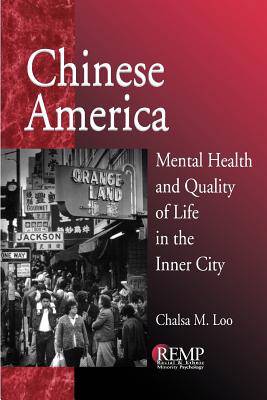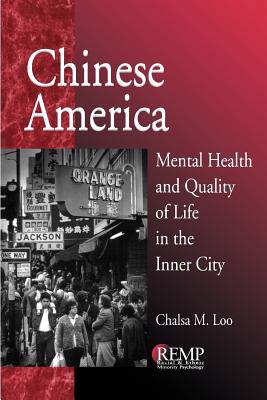
- Retrait gratuit dans votre magasin Club
- 7.000.000 titres dans notre catalogue
- Payer en toute sécurité
- Toujours un magasin près de chez vous
- Retrait gratuit dans votre magasin Club
- 7.000.0000 titres dans notre catalogue
- Payer en toute sécurité
- Toujours un magasin près de chez vous
160,45 €
+ 320 points
Description
Descriptions of Asian American communities have typically been either historical or literary. Such approaches leave us uniformed about the current conditions within the community and also leave us empty-handed in regard to knowledge by which to solve contemporary problems. Chinese America sets a new standard for ethnic research. By applying social and psychological issues to the historic U.S. community of Chinatown, this volume breaks the boundaries of community studies by addressing multiple controversial issues today. Author Chalsa M. Loo reaches deep into the vital issues that face most ethnic communities in this country. Through survey research, the delineation of major problems highlight needed changes in public policy and ethnic understanding. The core of the book is based on an in-depth study of residents of San FranciscoÆs Chinatown, the oldest Asian American community in the United States. Through surveys and collected interviews with residents, the author examines the social problems that might exist for all the major life domains of an ethnic minority community. Loo sought to test a number of hypotheses about Chinese Americans, Asian Americans, and immigrants, and found that the study dispelled many of the stereotypes and myths about these groups. Each chapter opens with a vignette and a photograph and is infused with quantitative analyses of survey data and census data. It is one of the few systematic studies of an Asian American community with an empirical and psychological approach, and it gives voice to a population that has been relatively invisible and misunderstood. Chinese American offers a comprehensive and richly informative documentation of text, photographs, and dataùa moving portrayal of the most famous Asian American community in the United States.
Spécifications
Parties prenantes
- Auteur(s) :
- Editeur:
Contenu
- Nombre de pages :
- 286
- Langue:
- Anglais
- Collection :
- Tome:
- n° 2
Caractéristiques
- EAN:
- 9780761912552
- Date de parution :
- 01-06-98
- Format:
- Livre broché
- Format numérique:
- Trade paperback (VS)
- Dimensions :
- 152 mm x 229 mm
- Poids :
- 485 g

Les avis
Nous publions uniquement les avis qui respectent les conditions requises. Consultez nos conditions pour les avis.






